The Digital Nomads of DevNest
Meet the digital nomads of DevNest!
As the world continues to embrace digital connectivity, the realm of possibilities for remote employment knows no bounds. The willingness to explore new places can only broaden one’s mind and enrich one’s life. The real, more challenging question is, what’s it really like to live and work in a foreign land?
In the ever-evolving landscape of today’s work, remote work has redefined the traditional notions of office spaces, cities, and even countries. At DevNest, we are privileged to have a fantastic team and an empowering way of working. Some of us have chosen to work from abroad, navigating a unique blend of professional dedication and global nomadism. While working on this material, we got a new perspective on digital nomadism.
Daniel moved to the UK more than a year ago, as his wife got an exciting opportunity to pursue her veterinary career there. The possibilities in this country are limitless, not just for his wife but also for Daniel. Although he misses his social circle and friends from home, he manages to find balance by flying back to Cluj-Napoca every chance he gets. Until now, he has dropped by our HQ about five times 😉. His biggest challenge in adapting to the UK was the weather—”You get to appreciate sunny days in a whole new manner,” he says.
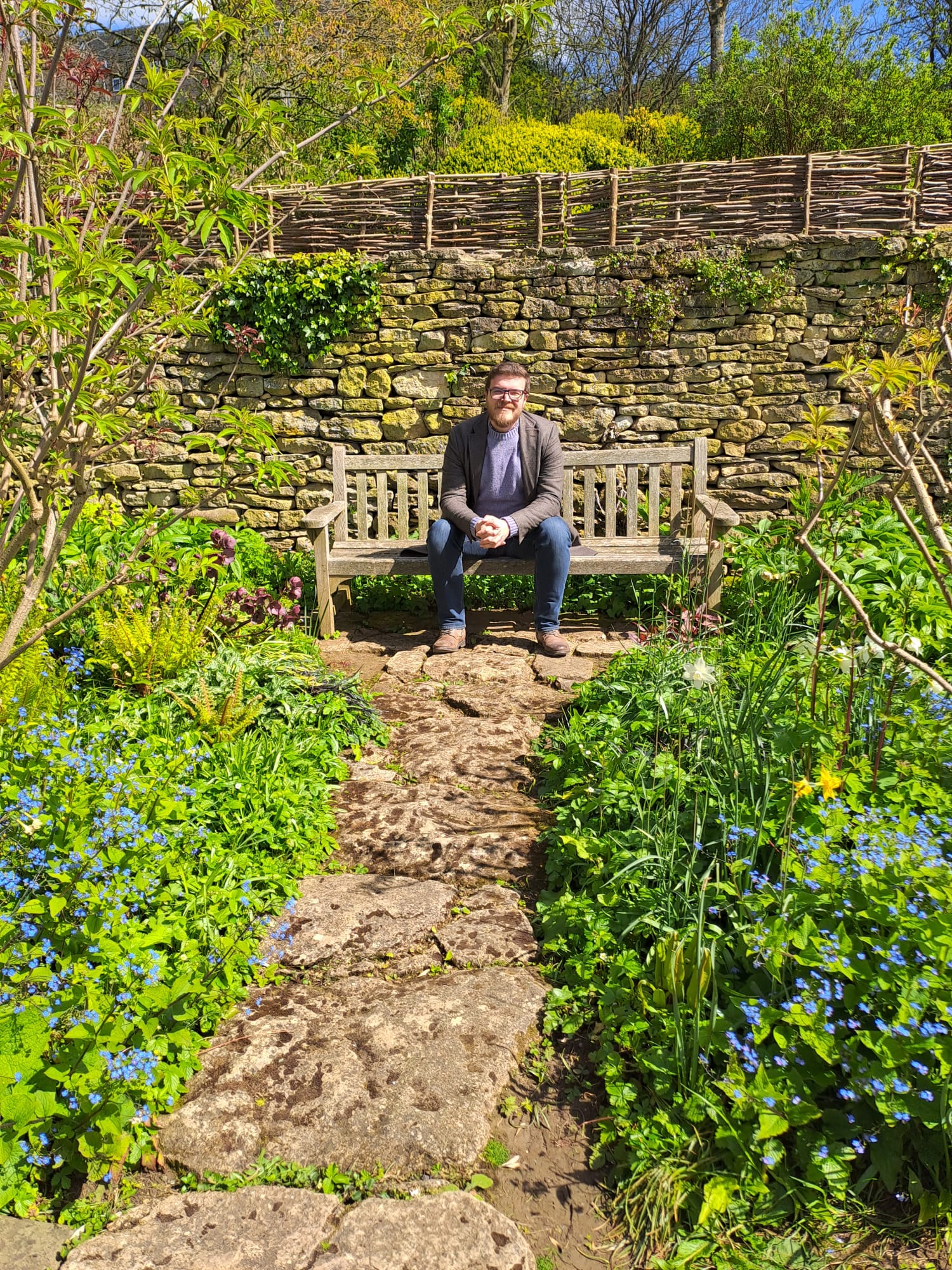
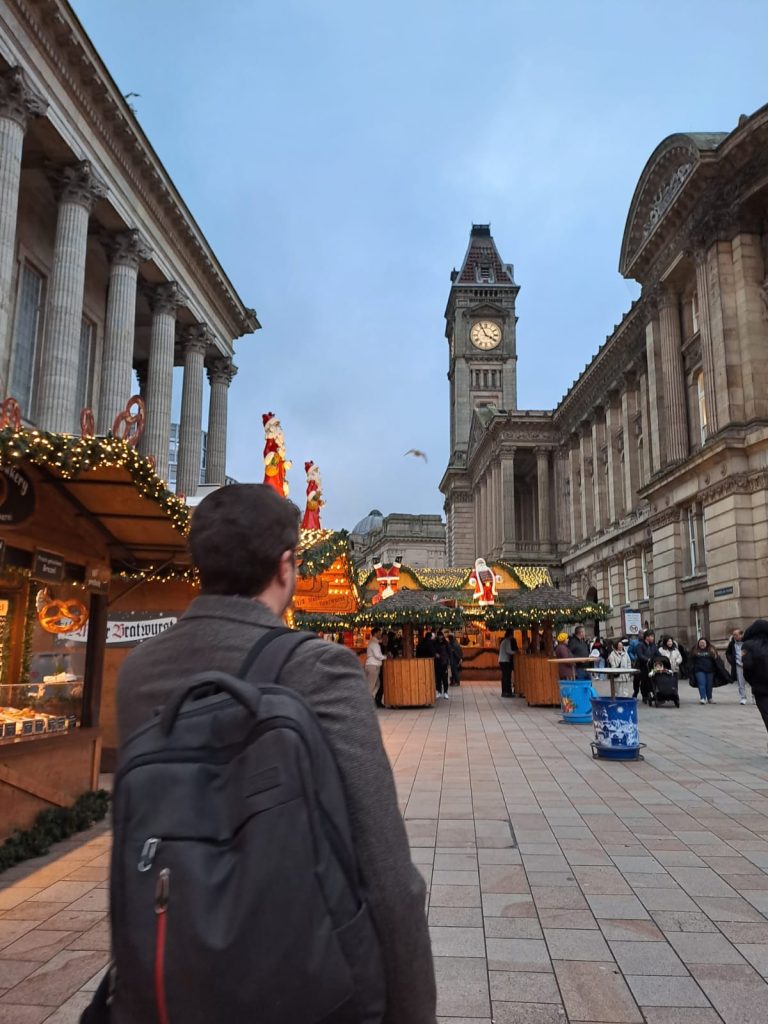
His work rhythm remained unchanged; nothing has changed regarding team communication and collaboration. Daniel works with people from around seven countries.
Living and working from abroad comes with many legal and/or administrative hurdles – Daniel felt that, as a foreigner moving to the UK, things are more challenging than one can assume. He had to pay a hefty amount for the visa and the health services in this country, but he feels it’s all worth it. ” I like taking drives and exploring new places each weekend. You can never run out of new places to visit in this country. Also, there is an endless variety of cuisines, and since I am a foodie, I like to discover new places. Whatever hobbies you have, you would find your “pack” to share and discuss your passions.”
Edina and Mihai moved permanently to UAE a couple of years ago. They feel that transitioning from the classic work structures in Romania to those in the UAE has been quite challenging.
“Here in Romania, you’re used to working and then paying taxes on what you’ve earned. The first shock was that even though it’s considered a “tax-free” country, it’s not quite like that. To be able to work, you need a work permit and a visa. Both cost more than taxes in Romania. You have to pay them upfront, before even working an hour, so it takes a leap of faith that everything will go well, as you have to give all the money upfront. You need a special kind of patience because everything here gets sorted out, but it takes an extremely long time.“, Edina says.
Indeed, there were challenges regarding paperwork and accommodation. But life in Dubai was perfect once Edina and Mihai sorted things out.
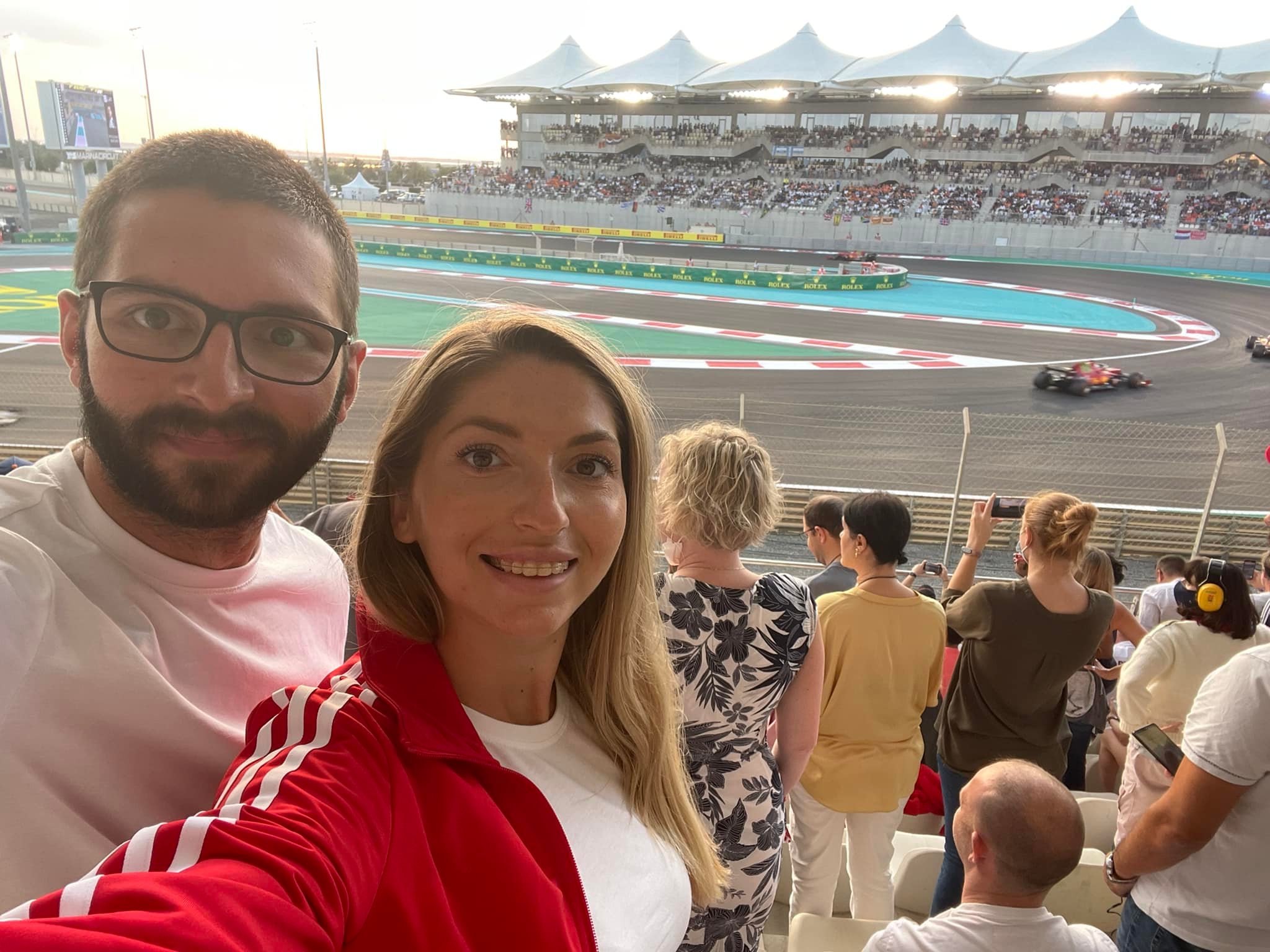
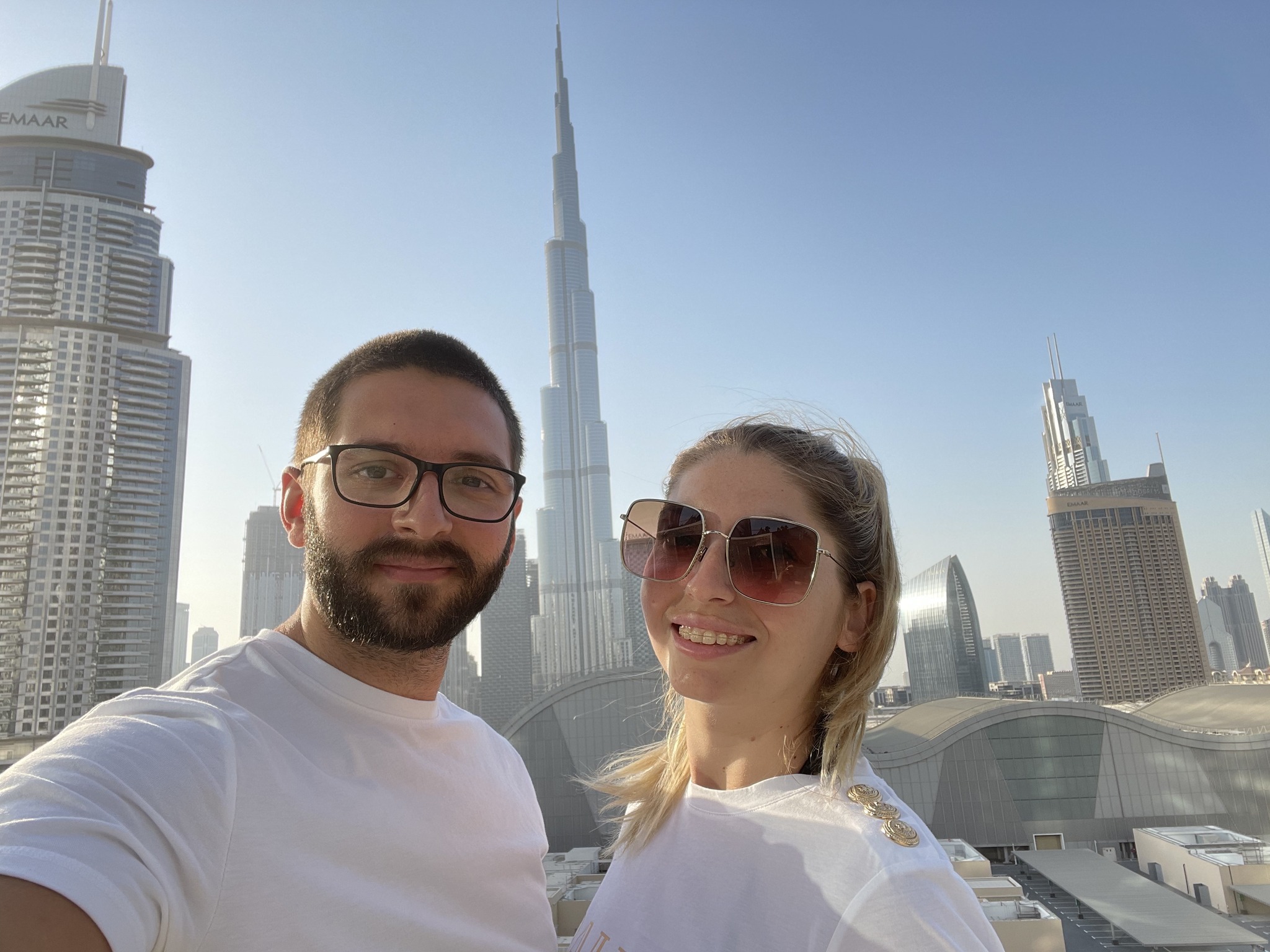
They’ve made new friends, mostly Romanians. With so many exciting events, expos, conferences, concerts, and festivals throughout the year, UAE showed them that nothing is impossible and that the environment can inspire people.
They work remotely, from home, or different co-working spaces, and, when it comes to after-work life, Edina and Mihai manage to maintain their usual activities – going to concerts, for dinner, for coffee, meeting up with friends or feeding cats in the park near them.
Dragoș, however, frequently moves from one continent to another. In the last year, he visited 12 countries! Our city’s climate is definitely a downside for him (and the value for money, too), so Dragos follows the sun – Spain, Egypt, Israel, Jordan, Hungary, Austria, Italy, Morocco, Malaysia, Singapore, Indonesia, and Turkey.
“I usually pick a destination (or destinations) first, and right after, I jump on Airbnb or book a room. I prefer Airbnb because when you are working remotely, it is much better to have the comfort of an apartment or house and to feel at home than working from a hotel. Price and location are key when searching for accommodations, and I try to find the best money value in this regard.”
For Dragos, the freedom of staying more in the place he loves enables him to feel the local flavor in a more slow-paced way ( not your average city break where you have 2 days to see 743 objectives ☺️). Of course, any new place comes with different challenges—the further you go from home, the more differences there are. Especially when you travel to more undeveloped countries, and you do not speak the local language, easy things might become a struggle.
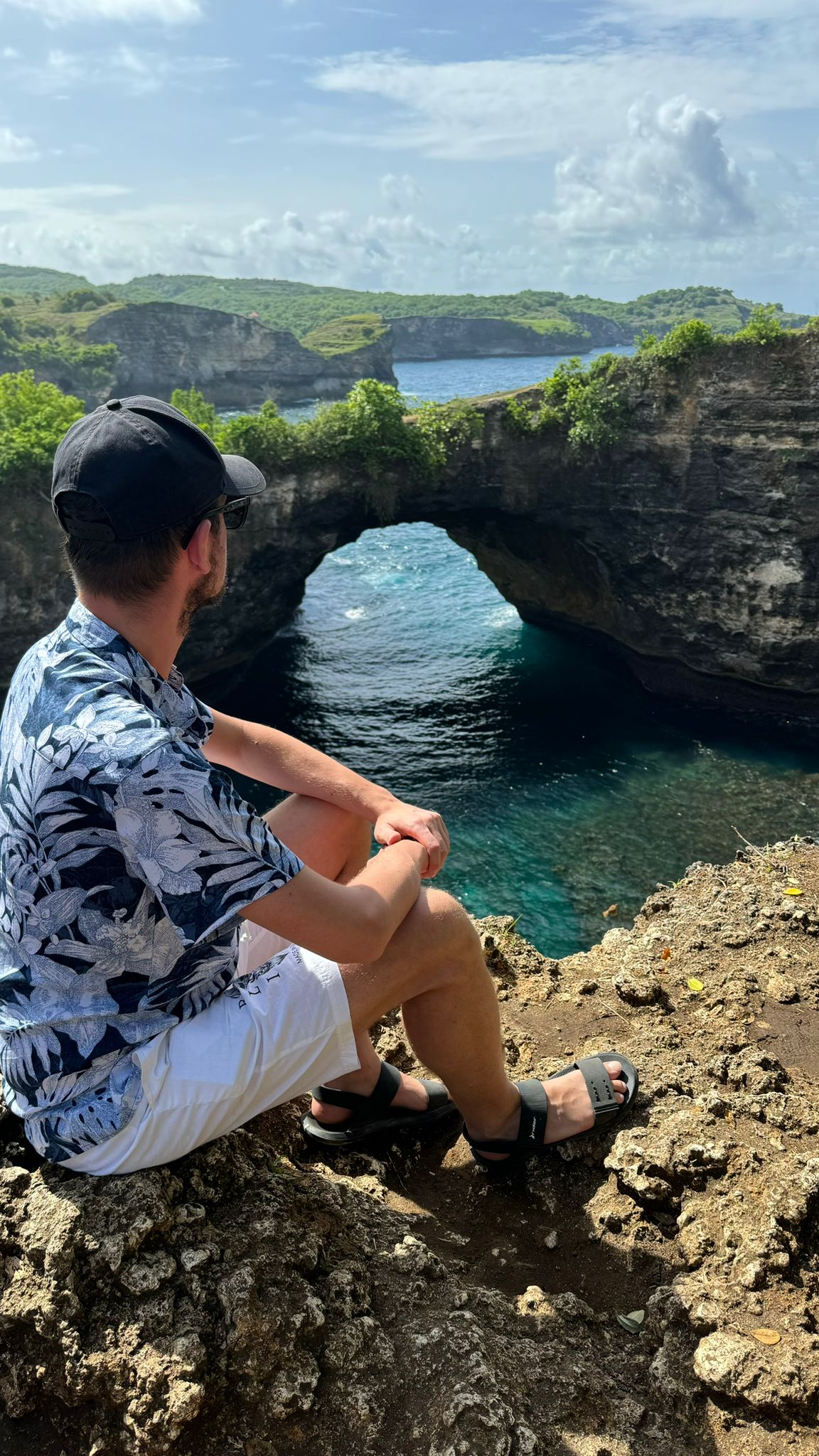
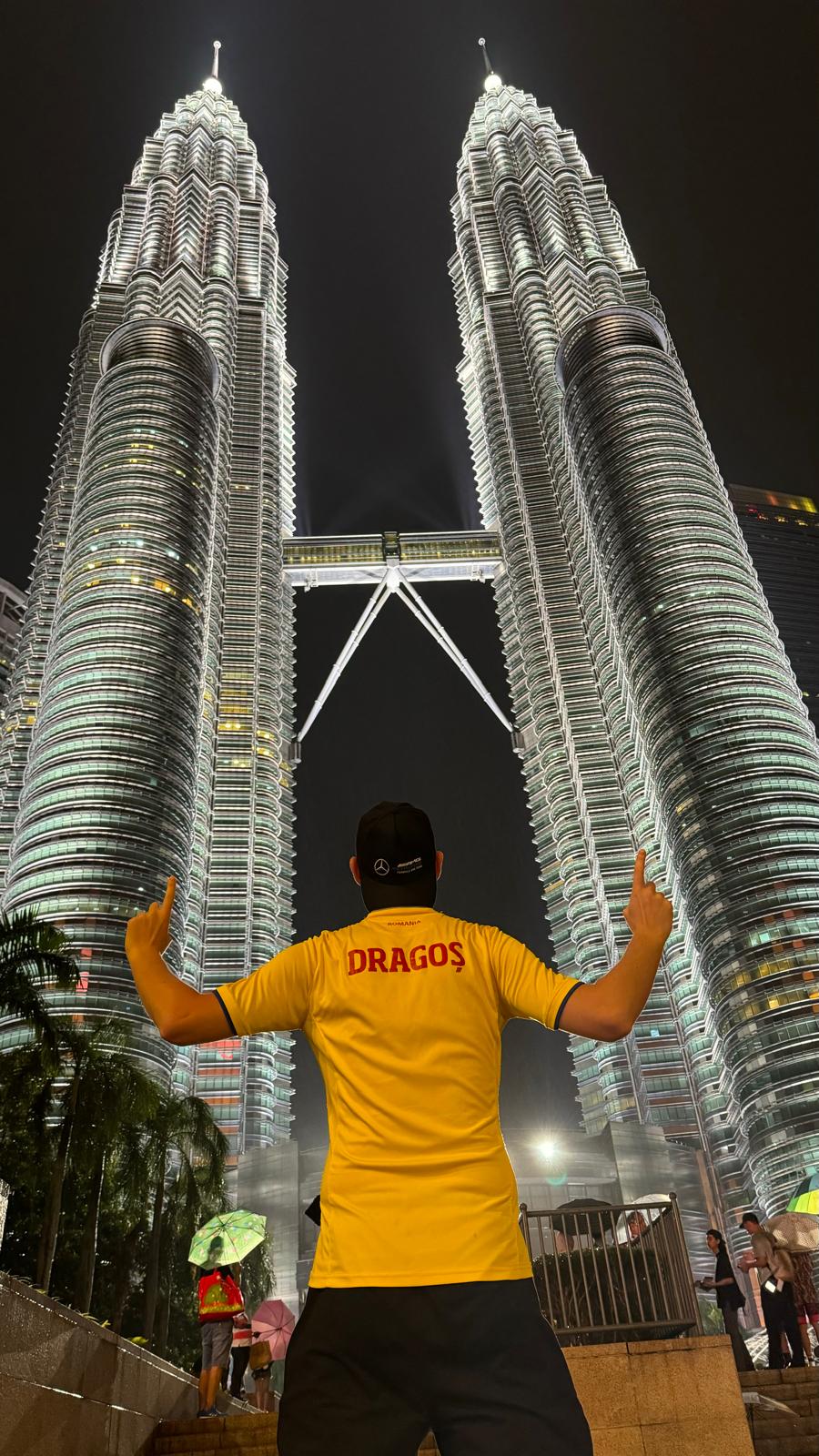
Regarding work, Dragos thinks the most important aspect is research and backup plans – “always do your research before going somewhere and, based on the type of work you have to do, don’t neglect the capability of doing your work from that country.” Many countries restrict VPNs, internet speed is far from great, and the time zone difference might be a nag. “Have communication channels installed on your phone + e-sim / sim with internet so you are always connected to the team also and, even if you can not perform the task right away, at least you can answer them and inform them when you can do it .”, says Dragos.
When maintaining effective communication with the team, Dragos always chooses to be honest with the people he works with. “Try to at least overlap half of the day with the rest of your team, even if it means working late hours or earlier than you are used to at home.”
Dragos gave us one piece of advice: “Do not be afraid of new countries, even if they are more underdeveloped. These will surprise you the most and give you the most joy.”
The digital nomads redefine the boundaries of work, travel, and personal fulfillment. Of course, this particular lifestyle isn’t without its challenges. It requires adaptability, self-discipline, and a willingness to navigate the complexities of working across time zones and cultures.
Despite all challenges, the rewards are profound – this lifestyle isn’t just a trend but a transformative way of life.
